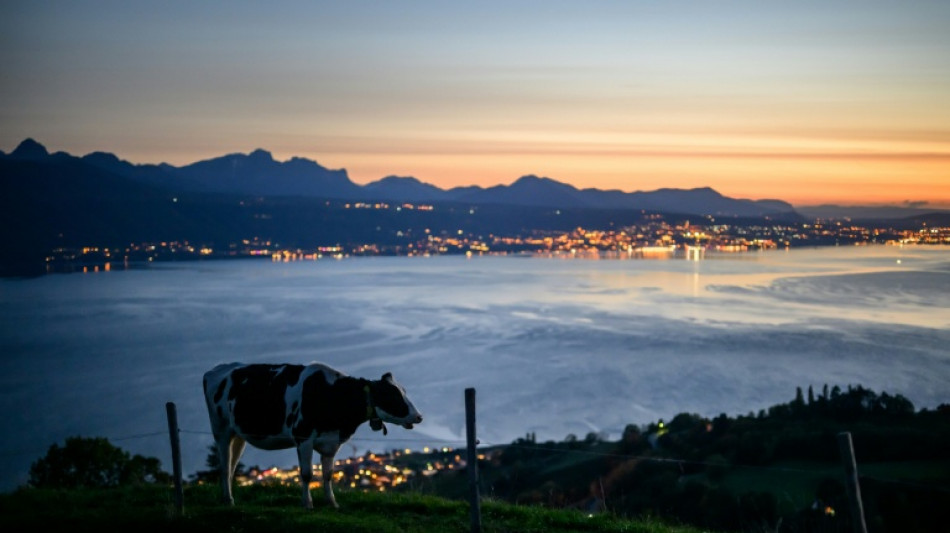
SCS
0.0200

Relief has given way to anxiety in Switzerland over the concessions made to spare the small Alpine nation from US President Donald Trump's threat of a stark 39 percent tariff.
Many details of the agreement Bern struck last week to slash the levy to 15 percent, on par with the surrounding European Union, have yet to see the light of day.
Businesses hailed the deal as averting potential disaster for the export-driven Swiss economy.
But others fear the fine print will include relaxing rules on the import of American food, including hormone-fed cattle and the chlorinated chicken which has become a bete noire of European critics of US big agriculture.
Switzerland's powerful farming lobby has waded into the debate, with farmers' union Uniterre rejecting any imports of chlorinated chicken and concessions likely to harm the country's proud milk and dairy industry.
Unusually for a party usually at loggerheads with Swiss agriculture, the left-wing Greens agreed, criticising the prospect of "American beef pumped full of hormones and cut-price chlorinated chicken" appearing on supermarket shelves.
Economy Minister Guy Parmelin, who travelled to Washington thrice for negotiations on the deal, was forced to clarify to public broadcaster RTS that Swiss consumers were not necessarily being expected to put swimming pool-chemical poultry on their plates.
"We have not talked, at this stage -- and I have to be very clear on this -- of the manner in which these chickens are produced," said Parmelin, adding that the chlorinated chicken affair was still up for discussion -- as with many other issues.
- Cybertrucks, web tax -
In a bid to end the government's "silence on key points concerning the agreement with Trump", the Swiss Socialist Party (PS) launched a petition on Monday demanding an explanation.
Besides the chlorine-bath birds, the petition also cites US weaponry and Tesla's electric Cybertrucks.
Though touted by Elon Musk, the futuristic stainless steel vehicle is currently banned in Switzerland because of safety concerns, while a California family has sued Tesla alleging their daughter died as a result of being trapped in the vehicle due to its door design.
A factsheet published by the White House revealed that Switzerland agreed to recognise US vehicle safety norms, raising questions over whether the polarising cars will soon be a fixture of the country's alpine roads.
The document equally mentions that Switzerland has committed to "refraining from harmful digital services taxes", without offering further details.
The economy ministry confirmed to AFP that Bern intended to drop a proposed tax on American Big Tech, while the car question will be a feature of upcoming negotiations.
Parmelin has also pointed to other products on which talks were ongoing, including industrial machines, steel, aluminium, coffee -- and the Alpine nation's world-leading cheese and watches.
"No agreement is ever perfect," economist Stephane Garelli, professor at the International Institute for Management Development (IMD) and the University of Lausanne, conceded to AFP.
Yet he argued that "we had to make concessions because the damage to Swiss industry and employment was far too great".
When contacted by AFP, Migros, Switzerland's largest supermarket chain, said it "has no plans to stock chlorinated or chemically treated chicken on its shelves" as those birds did not meet Swiss "consumer expectations".
A.Novak--TPP